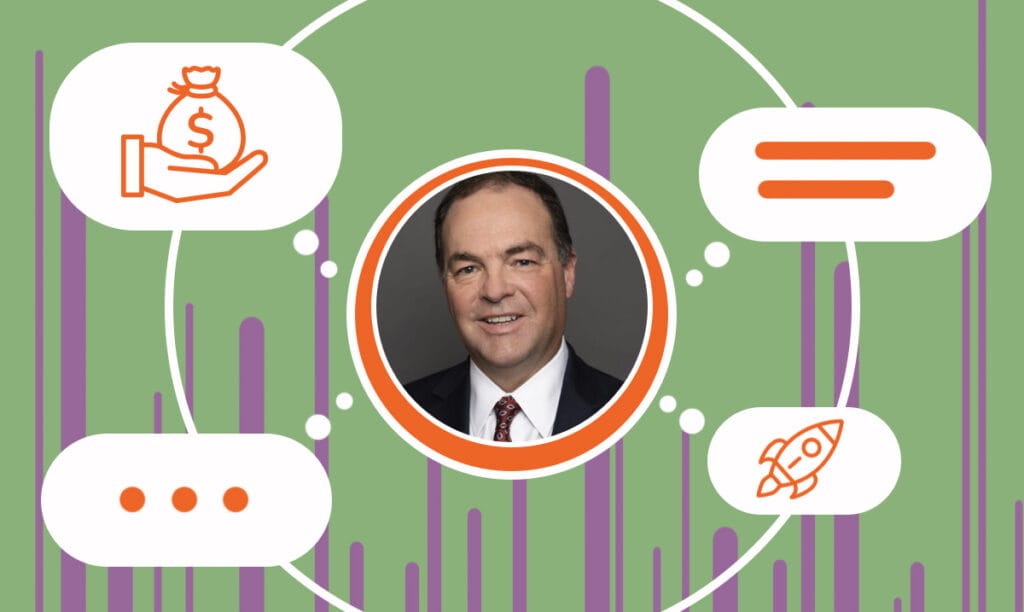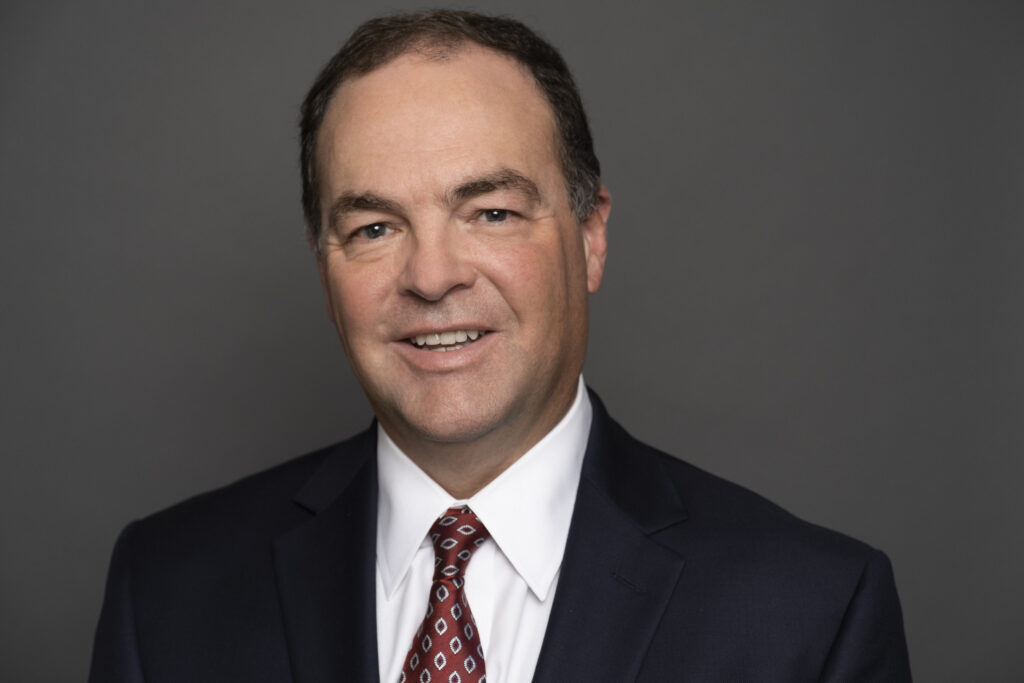In this interview, we sit down with Ben Torres, Vice President of Operations at The Vintage Whiskey and Cigar Bar, to explore the vision and passion ...
Sam Walls’ Vision for Transforming Communities Nationwide
Written by: Esther Strauss
Esther is a business strategist with over 20 years of experience as an entrepreneur, executive, educator, and management advisor.
Published on June 13, 2024

Below is an interview with Sam Walls, III, CEO of Arkansas Capital Corporation (ACC), a multifaceted Community Development Finance Company (CDFI) that was recently chosen by SBA to receive one of the three new SBLC licenses. The private, non-profit lending corporation is dedicated to empowering entrepreneurs across the US to meet the individual capital needs of businesses with a commitment to revitalizing communities in Arkansas and beyond. Since 1957, ACC has deployed over $2.34 billion in capital to small businesses and economic development projects.

Leadership Inspiration
What inspired you to lead Arkansas Capital Corporation (ACC) and how do your personal values align with the organization’s mission?
I am now in my 21st year at Arkansas Capital Corporation (ACC) and serving as its CEO wasn’t on my radar when I started here. My role, along with my colleague Les Lane, was to help build out the non-lending activities (project finance and entrepreneurial education) that ACC is now known for. Over the years these initiatives have become more and more successful. Two years ago, the ACC board appointed me CEO and it is one of the greatest honors in my life.
From a value perspective, I absolutely believe in the power of capitalism and entrepreneurship and their ability to positively impact people’s lives. As a kid growing up watching my parents run a small retail operation, I saw firsthand the challenges they went through so I appreciate what small business owners face. If ACC can continue to find ways to empower people to start or build their businesses, as we have for 67 years, we will be helping people, regardless of who they are or where they live, create opportunities for themselves, their families and those that work for them.
Impactful Initiatives
Could you describe a specific instance where ACC’s efforts significantly impacted a small business or community in the states across the US that you serve?
We have impacted many through the years in Arkansas as well as the surrounding states. One of my favorites is when we helped finance a full-service grocery store in a historically Black neighborhood in Oklahoma City through our New Market Tax Credit Program. There had not been a grocery store located in this area for over three decades and the ACC team was there to join the ribbon cutting event of the store. The day was abundant with excitement and optimism as several hundred people, including a marching band and the dance team for the Oklahoma City Thunder, joined in the celebration. We were inspired and moved to see third generation residents rejoice that the area was coming back from hard times because they could once again easily shop for groceries in their own neighborhood. For all of us at ACC, it was one of our most rewarding days watching our work come full circle.
Securing SBLC License
What was the strategic process behind applying for and securing one of the new SBLC licenses, and how do you see this transforming ACC’s operations?
We have wanted to expand our SBA lending footprint outside of Arkansas for several years but as a non-depository, non-federally regulated lender there were some hurdles in doing that. When the SBLC licenses became available in July of 2023, it was a great opportunity for us to execute this strategy. We knew we faced stiff competition, but we believed that our long-term commitment to entrepreneurs, small business owners and to the economies in rural communities gave us an advantage in being granted one of the three coveted licenses. We are extremely grateful for this opportunity to go nationwide. Operationally, we have already been working outside of Arkansas with some of our other lending, project finance and entrepreneurial education companies. However, now the SBLC license allows us to offer our full line of products/services across the US, starting in the surrounding states (TX, LA, MO, TN, MS, OK) that have helped so many Arkansans over the past 67 years.
Challenges in Expansion
What are some of the biggest challenges you face in expanding SBA 7a lending services nationwide, particularly in economically-challenged rural areas?
The challenge we have, but have already started to overcome, is getting the word out to new and existing businesses that they now have a new opportunity to fund their business vision and achieve their dreams. We are a relatively small non-profit, so we are not blessed with an unlimited advertising budget. Our plan is to leverage relationships with banks, brokers and Community Development Finance Institutions (CDFI) across these markets to reach those that have been traditionally overlooked. As with any expansion, another challenge is to learn the needs of each new community we are trying to serve as they all differ greatly from market to market. It is imperative we gather as much information as possible and, most importantly, listen to what our customers and community leaders are telling us. Then we can begin to customize our products to meet the individual needs of the entrepreneurs in each of the locations.
Measuring Success
How does ACC measure success in its initiatives, and what key performance indicators do you prioritize?
We measure success in a few ways, and it always starts by knowing what our goals are for each of the companies. Broadly speaking, we tend to look at both margin and mission. We are not a company that relies on subsidies to operate. In short, we must have positive revenue to serve our mission as a private economic development company that seeks to provide capital to entrepreneurs, regardless of who they are or where they live. For some of the things we do, margin and mission will go hand in hand. Our entrepreneurial education effort, micro-lending, and overall marketing initiatives, however, are investments we make to support our mission-driven activities.
Financial Strategies for Entrepreneurs
What financial strategies do you recommend for new entrepreneurs to help secure funding and manage their initial capital effectively?
- Understand your capital needs by spending time on your projected budget and build in contingencies.
- If you are a start-up, make sure you have a firm grip on your personal cash-flow needs and that you can keep your head above water while you start and build the business.
- If you are talking to people about securing money (either a loan or equity) make sure you can convey to them that you know and understand your business by providing clarity on what you do, how you do it, and why it matters. This seriousness-of-purpose will give them confidence in both you and your mission which is critical in lending.
- Find a good mentor(s) because that will give you a huge advantage. Working with an organization like a Small Business Development Center can be helpful but just as importantly, finding a successful entrepreneur who has gone through it before can be extremely valuable. Anytime an entrepreneur can shorten their learning curve on how to start and run their business can save them thousands of dollars in the long run.
Building Community Relations
How does ACC build and maintain strong relationships with the communities it serves, and why is this important for your mission?
We make the effort to engage with business and community leaders in our markets. For an economic development company this is crucial because if you don’t live in that community, it is easy to “assume” what is important to them. For example, people tend to paint the issues in rural areas all with the same brush, but the reality is that each has their own unique strategy to improve their communities. Listening to what they need vs. telling them is key to really having an impact.
EDGE Program Successes
Can you share some successes from the EDGE program that illustrate how education and entrepreneurship can transform communities?
The Education to Develop and Grow Entrepreneurs (EDGE) Initiative aims to enhance faculty capacity to foster entrepreneurial students at institutions with limited startup resources. The flagship program, the Governor’s Cup Collegiate Business Plan Competition, has been hosted by ACC for 24 years, impacting over 3,200 students and awarding more than $2.8 million to student entrepreneurs. Notably, 15% of Governor’s Cup finalists have successfully launched companies, with many still in operation, including Vascugenix, Con Quesos, and Lapovations.
Additionally, the Youth Entrepreneurship Showcase offers a similar education experience to students in grades 5 through 8. This initiative has reached over 9,800 elementary students who have submitted more than 1,000 business plans. These competitions provide students with real-world experiences in problem identification, solution design, and product-market fit, helping them develop critical thinking and communication skills.
Last year, the inaugural EDGE Summit brought together educational leaders from 16 communities and featured faculty speakers from 11 higher education institutions. Attendees included leaders from two of Arkansas’ historically black colleges, Philander Smith University and the University of Arkansas at Pine Bluff, both of which had finalist teams in the Governor’s Cup. Philander Smith University won first place in their division. By strengthening the entrepreneurship education ecosystem, EDGE aims to increase student startup
learning opportunities, fostering entrepreneurial talent in underserved communities across Arkansas and beyond.
Cultivating Innovation
As a leader, how do you foster a culture of innovation and entrepreneurship within ACC?
Today, ACC has successfully developed multiple companies and products under its umbrella. All of these happened because the message from our ACC team is to be an entrepreneurial company that should constantly look for opportunities to have impact from both a margin and mission perspective. We have always been willing to invest in good ideas. It is personal for me as I came up through the company in that environment and have tried to continue with this culture under my leadership.
Subscribe to Our Newsletter
and gain insider access to cutting-edge business insights and trends.
Featured Resources

Ben Torres on Creating a Whiskey And Cigar Bar In Charlotte, NC
Published on September 2, 2024
Read Now

How Bombay Eats Brings Authentic Indian Cuisine to Chicago
Published on September 2, 2024
Ali Dewjee and his wife Falguni embarked on a flavorful mission 14 years ago when they founded Bombay Eats, originally known as Bombay Wraps. With a ...
Read Now

How MedAssent DDS Supports Dental Medication Management
Published on September 2, 2024
Lauren Fang is a pioneering force in digital health, co-founding MedAssent DDS with a vision to revolutionize dental care. With a deep-rootedconnect ...
Read Now
Comments